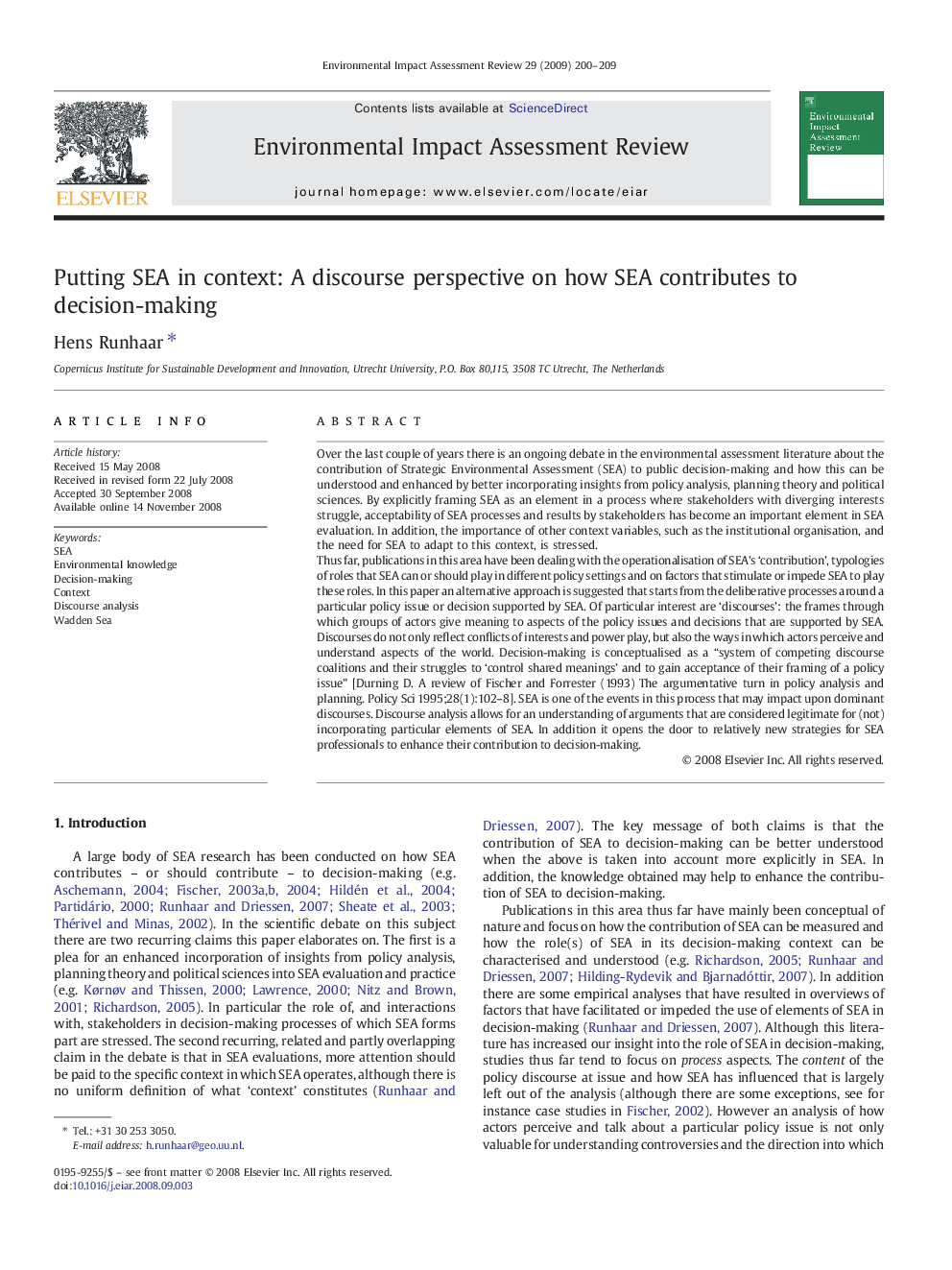| Article ID | Journal | Published Year | Pages | File Type |
|---|---|---|---|---|
| 1053170 | Environmental Impact Assessment Review | 2009 | 10 Pages |
Over the last couple of years there is an ongoing debate in the environmental assessment literature about the contribution of Strategic Environmental Assessment (SEA) to public decision-making and how this can be understood and enhanced by better incorporating insights from policy analysis, planning theory and political sciences. By explicitly framing SEA as an element in a process where stakeholders with diverging interests struggle, acceptability of SEA processes and results by stakeholders has become an important element in SEA evaluation. In addition, the importance of other context variables, such as the institutional organisation, and the need for SEA to adapt to this context, is stressed.Thus far, publications in this area have been dealing with the operationalisation of SEA's ‘contribution’, typologies of roles that SEA can or should play in different policy settings and on factors that stimulate or impede SEA to play these roles. In this paper an alternative approach is suggested that starts from the deliberative processes around a particular policy issue or decision supported by SEA. Of particular interest are ‘discourses’: the frames through which groups of actors give meaning to aspects of the policy issues and decisions that are supported by SEA. Discourses do not only reflect conflicts of interests and power play, but also the ways in which actors perceive and understand aspects of the world. Decision-making is conceptualised as a “system of competing discourse coalitions and their struggles to ‘control shared meanings’ and to gain acceptance of their framing of a policy issue” [Durning D. A review of Fischer and Forrester (1993) The argumentative turn in policy analysis and planning. Policy Sci 1995;28(1):102–8]. SEA is one of the events in this process that may impact upon dominant discourses. Discourse analysis allows for an understanding of arguments that are considered legitimate for (not) incorporating particular elements of SEA. In addition it opens the door to relatively new strategies for SEA professionals to enhance their contribution to decision-making.
